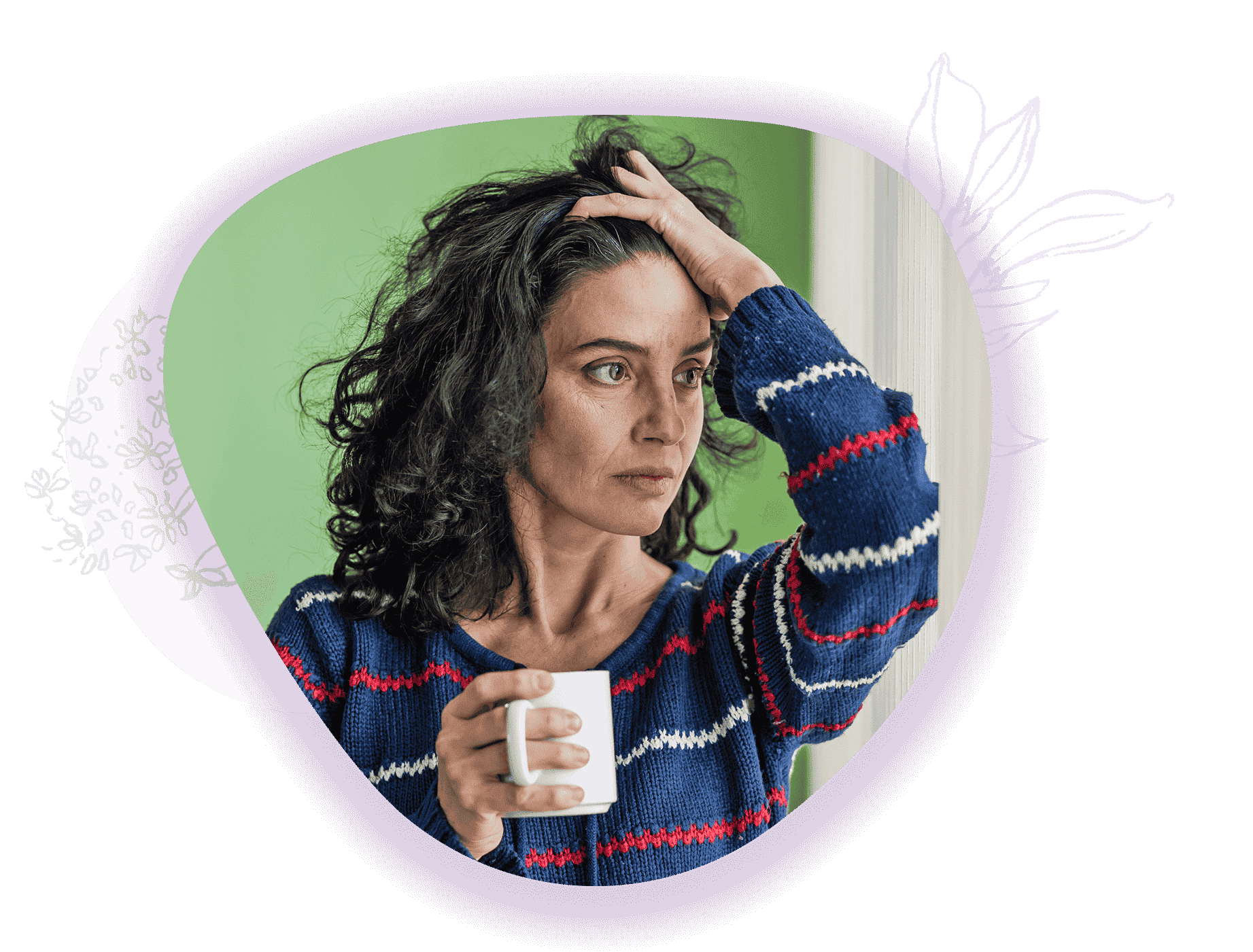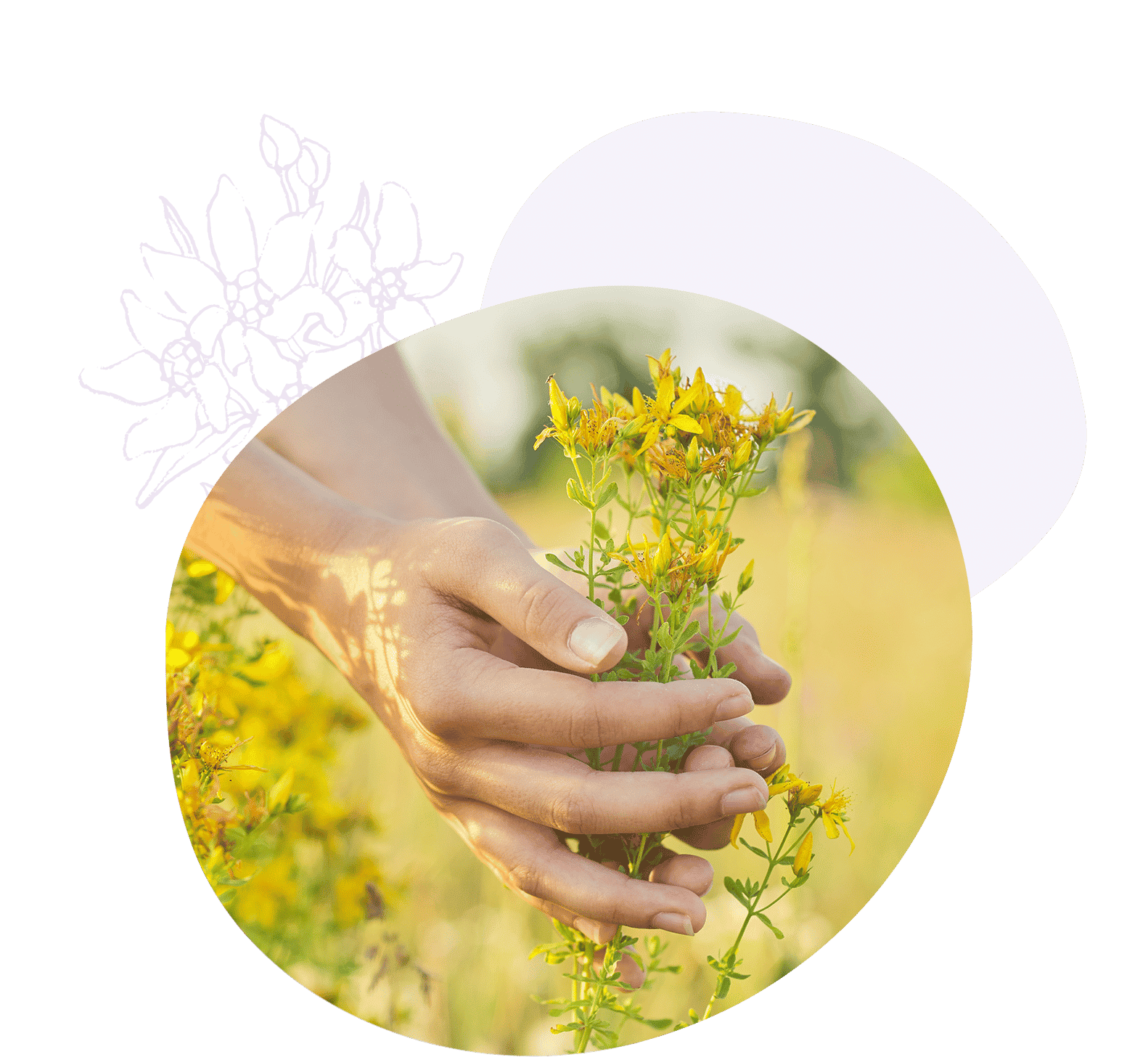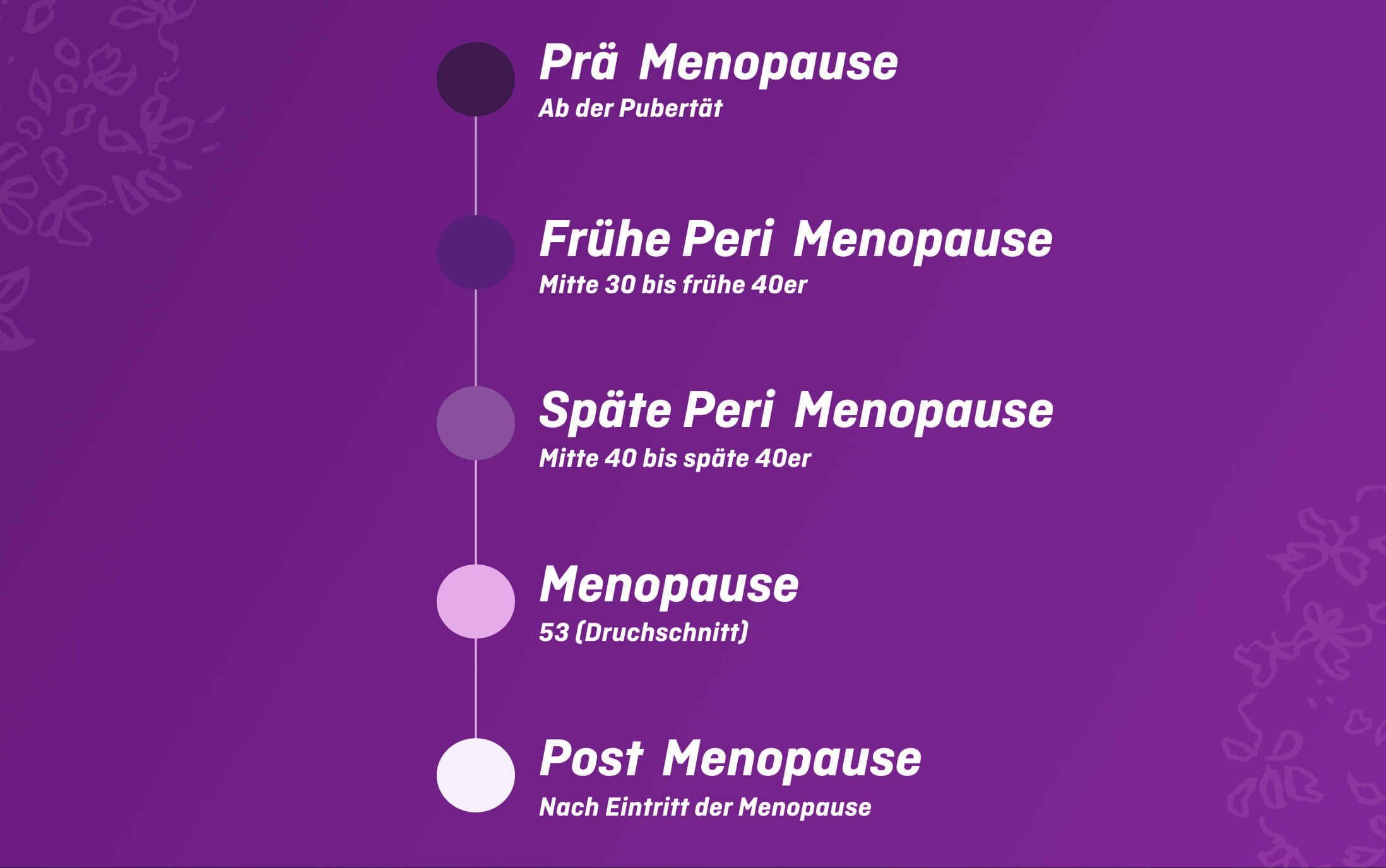Nervousness and internal restlessness during the menopause
If you find yourself losing your patience more quickly then usual, your resilience is dwindling or nervousness and internal restlessness are shaping your everyday life, then the menopause may be to blame.

Nervousness and internal restlessness during the menopause: Signs and symptoms
If you find yourself losing your patience more quickly then usual, your resilience is dwindling or nervousness and internal restlessness are shaping your everyday life, then the menopause may be to blame. How do nervousness and internal restlessness manifest themselves during the menopause, what treatment options are available and what can you do to help yourself? Find out this and more in this article.

Internal restlessness and nervousness during the menopause can be seen in various symptoms, such as in the form of excessive sweating, insomnia, heart palpitations, rapid heartbeat, headaches, poor concentration, loss of performance, irritability, aggressiveness and sadness, right as far as depressive moods. Resilience decreases, meaning that even women once known to be true multitaskers have to slow things down. The intensity and frequency of the symptoms can vary greatly depending on the individual.
Often, the cause of internal restlessness and nervousness lies in hormonal changes. But hormones are not always the sole cause. Low blood sugar, low blood pressure and certain illnesses such as an overactive thyroid can cause similar symptoms. Among other things, internal restlessness and nervousness are facilitated by high coffee, nicotine and alcohol intake. And vice versa, withdrawal from these stimulants can also result in internal restlessness and nervousness. Some medications can also trigger nervousness and internal restlessness.
Even external life circumstances during the menopause such as personal, private and professional upheavals can be a cause of nervousness and internal restlessness during the menopause.
Nervousness and internal restlessness during the menopause – What you need to know
Nervousness, internal restlessness and irritability occur relatively frequently during the menopause. Around two-thirds of all women develop these side effects during the menopause. Especially during the premenopause, irritability and nervousness are dominant, falling again during the menopause and during the advanced postmenopause, they only affect one in four women.
Around 65% of women suffer from internal restlessness, irritability and nervousness during the menopause. Irritability and nervousness occur particularly during the premenopause and gradually subside during the menopause.
Three hormones are essentially responsible for making women’s emotions go haywire during the menopause and causing nervousness and internal restlessness.
Oestrogen: Some women starting the menopause report leading a pleasant life and still being plagued by internal restlessness and nervousness. The cause may be a drop in oestrogen levels during the menopause, as oestrogen is also considered a happy hormone.
Testosterone: The same applies for the male hormone testosterone, which women produce in lower amounts than men. A decrease in testosterone level can have a negative impact on the psyche and cause internal restlessness and nervousness.
Oxytocin: And then there’s is oxytocin, which is released, among other things, during sexual intercourse and is therefore sometimes called the ‘cuddle hormone’. It helps to connect partners, as well as mother and baby. A shortage of oxytocin can lead to internal restlessness and nervousness.

Nervousness and internal restlessness during the menopause: Prevention and treatment
Nervousness, irritability and internal restlessness are tedious and may perhaps even be a burden, for you as well as for those around you. These side effects of the menopause are usually only temporary and go away over time. Whether you can live with this or want to change something is usually a question of psychological strain and also depends on your attitude to getting older. If you actively accept this phase of change and the symptoms if comes with, you can muster new strength and potential and actively shape the changes.
Relaxation techniques are a very effective way of reducing internal restlessness and nervousness. These include autogenic training, Jacobsen’s muscle relaxation technique, Qi Gong or even meditation and Tai Chi.
Exercise also helps to clear your head and create some detachment. Regular exercise during your free time and light endurance sport break down stress, improve your mood and stabilise your internal balance.
menoelle® and nervousness
Thanks to their holistic mode of action, menoelle® tablets are the means of choice for the effective, hormone-free and well-tolerated alleviation of menopausal symptoms, particularly if a classic or herbal hormone therapy is not possible or desired.
menoelle® tablets are also a reasonable alternative if other products are not effective enough or cannot be considered due to their risk of side effects or their restrictions of use.
A few suggestions on how you can find more serenity:
Change your perspective: Take a look at your personal situation from another perspective. Your children are more independent or have already left home. This means that you have less housework and more time for yourself, your job, your hobbies and your partner.
Say no: Learn to say no. This mainly applies whenever you are feeling overwhelmed. It is therefore important to know your own limits.
Avoid escalation: Remove yourself from a situation if you notice that it might escalate. This helps you to avoid words, statements or comments that you might regret later.
Recognise the causes: Once you sense nervousness and internal restlessness, step aside within yourself. Look at your situation from the outside by changing your position and ask yourself why you are experiencing internal restlessness and nervousness.
Breathe the stress away: Learn breathing techniques to help you breath internal restlessness and nervousness away. If possible, go out into the fresh air whenever restlessness unrest and nervousness appear, and take a few deep breaths.
EstroG-100® and nervousness: The natural medicinal herb extract EstroG-100® alleviates numerous discomforts during the menopause and is highly effective against nervousness. Clinical studies have shown a significant reduction in the occurrence of these menopausal symptoms of around 62%.
Unlike all other remedies for menopausal symptoms, menoelle® tablets do not come with any usage restrictions. What’s more, they are not known to have any undesirable effects, meaning you can alleviate your symptoms with menoelle® long term.
Cue: Visit the doctor
If you are experiencing nervousness and internal restlessness over a longer period of time and they are negatively affecting your everyday life and reducing your quality of life, you can seek professional help from your GP, a gynaecologist or a menopause consultant.
Various therapy forms are available for treating nervousness and internal restlessness during the menopause and their application depends on the intensity of your complaints.
One example is conversational therapy, for recognising personal problems and finding individual solutions. A temporary medicinal therapy – including with herbal active ingredients – can help to better master this phase.
If possible, clarification and treatment of internal restlessness and nervousness during the menopause should be holistically tailored and take all factors into account.


Herbs for internal restlessness
Lavender, valerian, hops and melissa are generally known to be calming medicinal herbs. St. John’s wort improves mood and relieves internal restlessness. If your sleep is leaving much to be desired, passionflower is a good choice.
If your nerves are on edge, then simply brew a cup or pot with a lovely blend of herbs. Enjoy a relaxing bath after a stressful day. Or wind down the evening with a glass of non-alcoholic beer after a walk, for example.
Stockists
menoelle® menopause tablets can be purchased in dm, Rossmann, Müller, BUDNI and Globus branches.
menoelle® menopause tablets can also be purchased online at menoelle, aponow, dm, Rossmann, Müller, Amazon.
Menotest
menoelle®-menopause test
Am I already in the menopause or not yet?
Simply answer the 20 short questions in our menoelle® menopause test to know more straight away.






